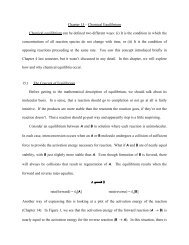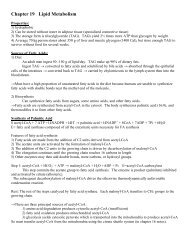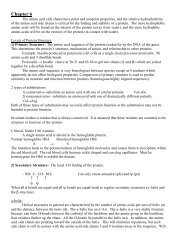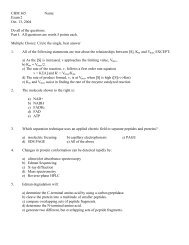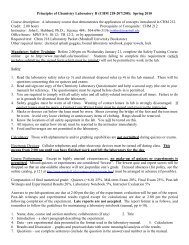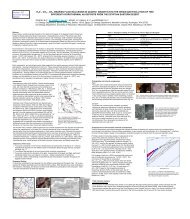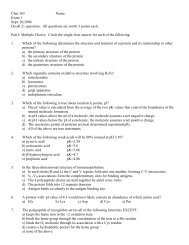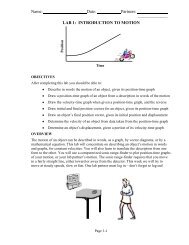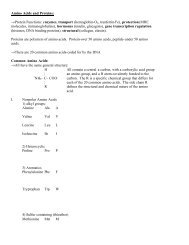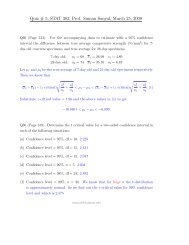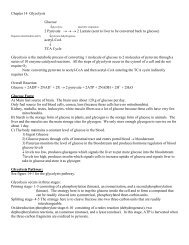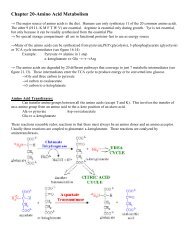THE DHAMMAPADA: THE WAY OF THE BUDDHA, VOL. 9-12 The ...
THE DHAMMAPADA: THE WAY OF THE BUDDHA, VOL. 9-12 The ...
THE DHAMMAPADA: THE WAY OF THE BUDDHA, VOL. 9-12 The ...
Create successful ePaper yourself
Turn your PDF publications into a flip-book with our unique Google optimized e-Paper software.
198 <strong>THE</strong> <strong>DHAMMAPADA</strong>: <strong>THE</strong> <strong>WAY</strong> <strong>OF</strong> <strong>THE</strong> <strong>BUDDHA</strong>, <strong>VOL</strong>. 9-<strong>12</strong><br />
Two middle-aged men were walking off the tennis court after only a few minutes of play. <strong>The</strong> older, somewhat<br />
corpulent fellow was puffing heavily.<br />
”I guess I am in pretty poor shape,” he confessed ruefully.<br />
”How long have you been playing, Herbie?” asked the young man.<br />
”About two weeks.”<br />
”<strong>The</strong>n let me give you a little practical advice. Try the Christian Science way mind over matter.”<br />
”I already have,” admitted the fat one. ”When my opponent serves the ball to me, my Christian Science mind<br />
says, ’Now, Herbie, you just race right up to the net, slam a blistering drive to the far corner of the court and<br />
then jump back into position.’ That’s exactly what my Christian Science mind tells me....<br />
”But my Jewish body says, ’Herbie, to make a schlemiel out of yourself you don’t need!’”<br />
In fact, body and mind are not two things: the body is the outer side of the mind, the mind is the inner side<br />
of the body. To use the phrase ’body and mind’ is not right; you are bodymind, not even a hyphen in between.<br />
We should use it as a single word ’bodymind’, ’psychosomatic’. So of course, your inner affects your outer, your<br />
outer affects your inner you are bodymind but you are not finished with the bodymind. <strong>The</strong>re is a witness also.<br />
John Fisant, rather than bothering about physical immortality, get in touch with your witnessing soul which<br />
watches the body and mind both. It watches life, it watches death; hence it transcends life and death both. Only<br />
this witness is immortal because it is never born and it never dies.<br />
<strong>The</strong> Zen people call it the original face. This witnessing is your original face. And meditation is nothing<br />
but an art to discover your original face. You are immortal, but not physically; just in your awareness, in your<br />
consciousness you are immortal, you are universal.<br />
<strong>The</strong> fourth question:<br />
Question 4<br />
BELOVED MASTER, WAS <strong>BUDDHA</strong> NOT A POET? DID HE NOT HAVE A LOGICAL MIND? HOW ARE<br />
WE AS NEW MEN AND WOMEN TO GO BEYOND WHAT YOU HAVE CALLED HIS ONE-DIMENSIONALITY,<br />
WHEN IT SEEMS THAT YOUR BASIC TEACHING, AS WELL AS THAT <strong>OF</strong> <strong>BUDDHA</strong>, IS SIMPLY AWARE-<br />
NESS?<br />
Roderick, Gautama the Buddha was not a poet if you understand him directly, but if you understand him via<br />
me, he IS a poet. When I am speaking on Buddha it is very natural that my color is reflected in him.<br />
I love poetry and I go on finding poetry even where it is not.<br />
Buddha is like a desertland but I love oases and I go on discovering them. If you had seen Buddha you would<br />
have seen immediately that he couldn’t have anything to do with poetry. Poetry was fiction for him, as much<br />
fiction as it was for Plato. In his Republic, Plato says, poets will not be allowed, for the simple reason that they<br />
are liars, they live in lies. What is poetry? Beautiful lying! Buddha was also of the same mind; he would have<br />
agreed with Plato. He was very insistent on truth.<br />
My approach is different. I don’t see religion as a dry, dead thing. To me religion is a song, a dance. If I<br />
am going to create a republic, a utopia, then poets will be the only citizens there; they will be the only ones<br />
allowed because beauty is far more valuable than truth itself. And the poet discovers beauty not only discovers,<br />
he creates. <strong>The</strong> poet is creative.<br />
It is because of me that in Buddha you will find poetry. Excuse me, I cannot do otherwise. That’s why<br />
Buddhists are not happy with me; particularly Buddhist scholars are not happy at all. <strong>The</strong>y say I go on finding<br />
in Buddha things which are not there. I am not much concerned whether they are there or not. I use Buddha<br />
only as an excuse, just as I use Jesus and I use Mahavira and I use Patanjali. I am not a commentator I have<br />
my own vision. I use them as pegs to hang myself on.<br />
When you are hearing Buddha through me, it is a totally different phenomenon. You are looking through<br />
my eyes; hence Buddha will look like a poet but he was not. He was a very logical man; hence I say he was<br />
one-dimensional. He was utterly logical, as logical as Ludwig Wittgenstein.<br />
Wittgenstein says you should not speak about something which cannot be spoken of. That’s exactly Buddha’s<br />
standpoint; Buddha would have immediately agreed with Wittgenstein. That’s exactly what he said twenty-five<br />
centuries before Wittgenstein. He never spoke about God because nothing can be spoken about God; hence don’t<br />
say anything. Even to say that nothing can be spoken about God is to say something about God; better not to<br />
say even that.<br />
<strong>The</strong> Upanishads say: Nothing can be said about God; he is indefinable. Buddha will not say even that because<br />
that is self-contradictory. To say that nothing can be said about God is self-contradictory because you have<br />
said something already. Even to say that nothing can be said is saying something. Buddha was utterly logical,<br />
absolutely logical. He kept absolutely silent.



